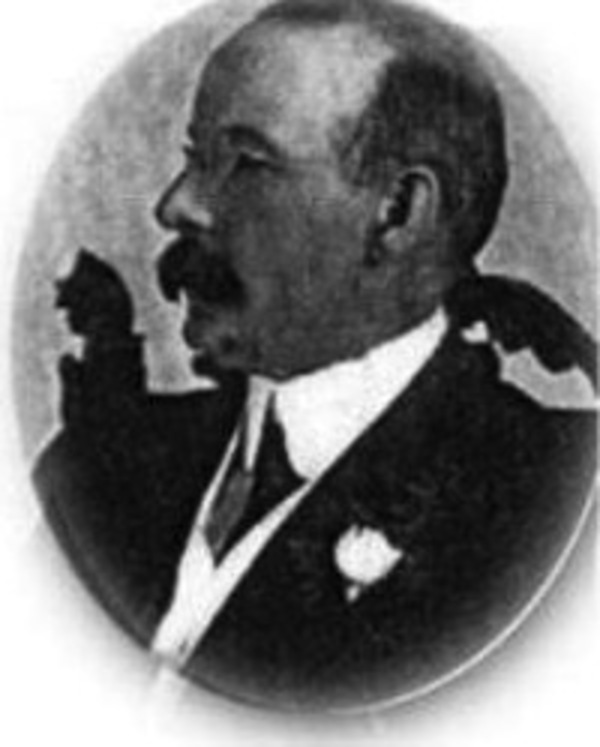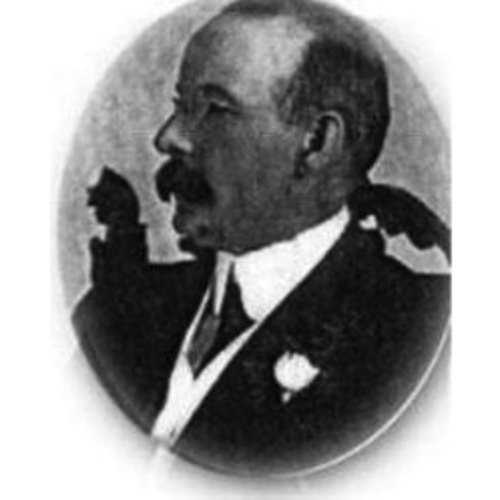
Source: Courtesy of Wikimedia Commons
JACK, DAVID RUSSELL, author, editor, publisher, and politician; b. 5 May 1864 in Saint John, one of the six children of Henry Jack and Annie Carmichael Johnston; great-grandson of Thomas Millidge* and grandson of Hugh Johnston*; d. unmarried 2 Dec. 1913 in Clifton Springs, N.Y.
Russell Jack first achieved acclaim in 1883 with his award-winning Centennial prize essay on the history of the city and county of St. John. Completed just two years after his graduation from the Saint John Grammar School, it presaged his career as a respected historian and author. Jack’s interest in history stemmed in part from the reminiscences of relatives such as his maternal grandmother, Harriet Maria Millidge Johnston, the daughter of planters and loyalists at Saint John. His paternal ancestry included loyalists who had settled at St Andrews.
After the untimely death of his father in 1884, and as the only son who had survived to adulthood, Jack was compelled to take over the family insurance business; at the same time he assumed his father’s duties as Spanish vice-consul. Public-spirited, Jack served Saint John as a member of the Common Council in the 1890s. Although he pushed for the preservation and promotion of the heritage of the city, he was also an avid supporter of progress and was instrumental in achieving the introduction of electrical street lighting. In addition to his duties as a councillor, he served for seven years on the Board of School Trustees.
A member of the citizens’ committee formed to make local preparations for the royal visit in 1901, Jack was closely involved three years later with the tercentenary of the arrival at the Saint John River of Samuel de Champlain* and Pierre Du Gua* de Monts. In 1910 he was responsible for the installation of the Champlain Monument in Queen Square. His civic interests extended into architecture as well; at least one example of his designs, a prospectus for a proposed apartment house, is held by the New Brunswick Museum. He even attempted, on his own account, to develop Bay Shore Beach as a resort and a prime location for surf bathing – all the rage in health remedies at the turn of the century.
Jack is most remembered as the editor and publisher of Acadiensis, a quarterly devoted to the political, social, and cultural history of the Maritime provinces which he had launched in January 1901. It included many of his own contributions on a wide range of historical topics. Extremely ambitious, and professional by contemporary standards, the magazine is considered one of the most important periodicals of its kind produced during the era. Unfortunately, Jack could not sustain the costs involved, and it ceased production in October 1908.
Throughout his life Jack assiduously cultivated his literary and historical connections. To this end, he was corresponding secretary for the New Brunswick Historical Society and a corresponding member of the New York Genealogical and Biographical Society and the Literary and Historical Society of Quebec. He also held the position of historian with the New Brunswick Loyalist Society. Membership in the Canadian Club, the St Andrew’s Society, and the Saint John Art Club figured prominently in his public activities as well.
Jack wrote travel articles for the Montreal Daily Star and other Canadian periodicals including the University Magazine (Montreal) and the Queen’s Quarterly (Kingston, Ont.). The experiences of his journeys abroad probably inspired him to publish privately, in 1900, a limited-edition booklet Summer tourists: a manual for the New Brunswick farmer, which outlined the steps rural dwellers should take to attract summer boarders. He also provided the extensive entry on David William Jack, his grandfather, in Biographical review . . . of leading citizens of the province of New Brunswick (Boston, 1900), a volume edited by his first cousin Isaac Allen Jack*.
In 1913 Jack published History of Saint Andrew’s Church, Saint John, N.B., an account of the Presbyterian church in which he had long been active. That year he was awarded membership in the Royal Colonial Institute of London. At the time of his death, he was preparing a history of the New Brunswick loyalists and their descendants. The loss of his energy, sense of purpose, and vision was widely lamented when he died at age 49 in the sanatorium in Clifton Springs, where he was being treated for heart disease.
[Only portions of Jack’s correspondence, writings, and research remain. The N.B. Museum houses fragmentary files in its David Russell Jack coll. Occasionally items surface in private collections p.j.l.]
N.B. Museum, Vert. file, D. R. Jack. Daily Telegraph and the Sun (Saint John), 3 Dec. 1913. Saint John Globe, 3 Dec. 1913. Canadian annual rev. (Hopkins), 1901, 1910. Canadian men and women of the time (Morgan; 1912). An index to “Acadiensis,” 1901–1908, comp. Dorothy Cooke (Halifax, 1983). Standard dict. of Canadian biog. (Roberts and Tunnell), vol.1. Wallace, Macmillan dict.
Cite This Article
Peter J. Larocque, “JACK, DAVID RUSSELL,” in Dictionary of Canadian Biography, vol. 14, University of Toronto/Université Laval, 2003–, accessed April 26, 2025, https://www.biographi.ca/en/bio/jack_david_russell_14E.html.
The citation above shows the format for footnotes and endnotes according to the Chicago manual of style (16th edition). Information to be used in other citation formats:
| Permalink: | https://www.biographi.ca/en/bio/jack_david_russell_14E.html |
| Author of Article: | Peter J. Larocque |
| Title of Article: | JACK, DAVID RUSSELL |
| Publication Name: | Dictionary of Canadian Biography, vol. 14 |
| Publisher: | University of Toronto/Université Laval |
| Year of revision: | 1998 |
| Access Date: | April 26, 2025 |



